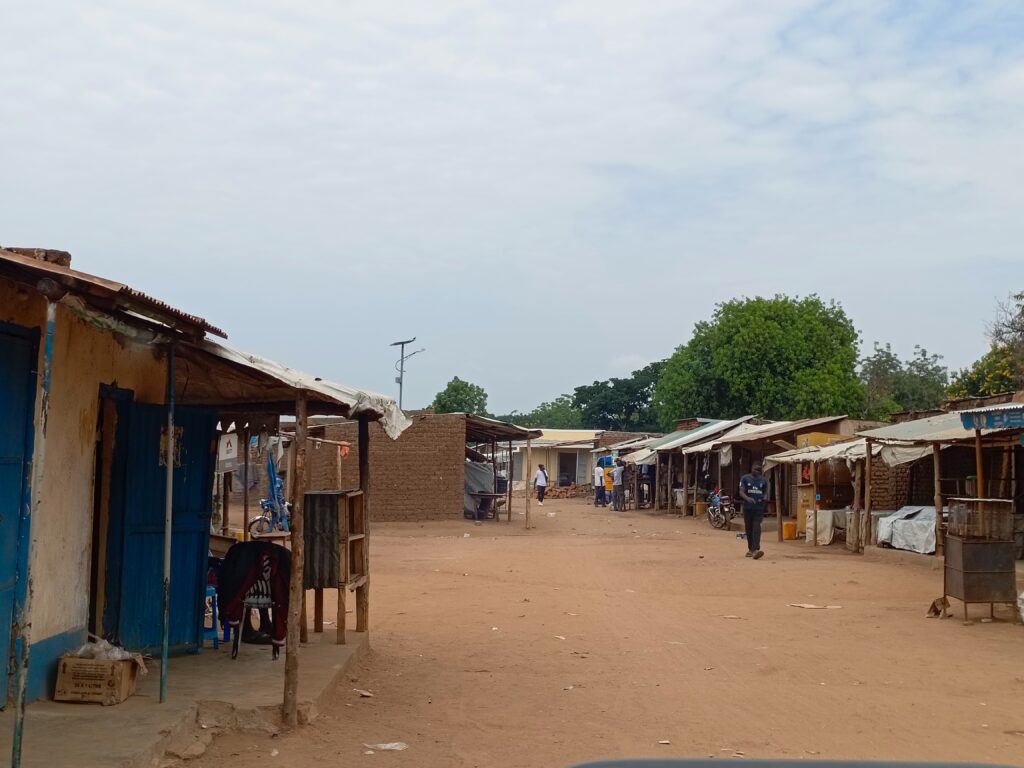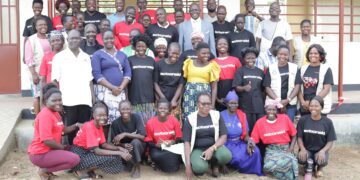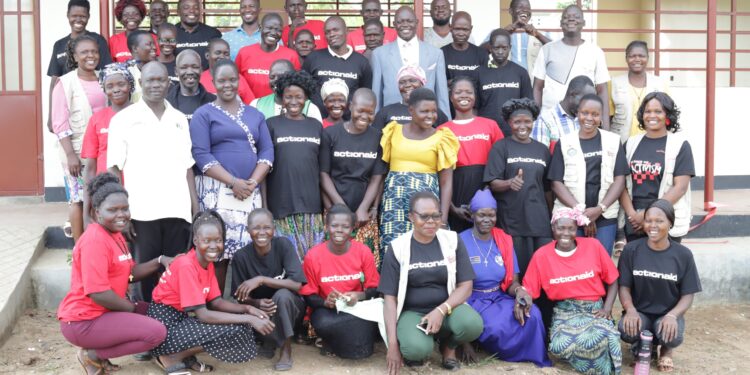Imvepi, Terego District – ActionAid International Uganda has launched a new Women and Girls Safe Space in Imvepi Refugee Settlement in a significant boost for refugee women and girls in Uganda’s West Nile Region.
The facility, located in the Elema zone, aims to provide psychosocial support, leadership training, and livelihood skills to survivors of trauma and gender-based violence (GBV).
The launch, supported by the Government of Denmark through ActionAid Denmark and the Ministry of Foreign Affairs under the SPA11 project, comes amid growing calls for more targeted support for displaced women living in refugee camps.
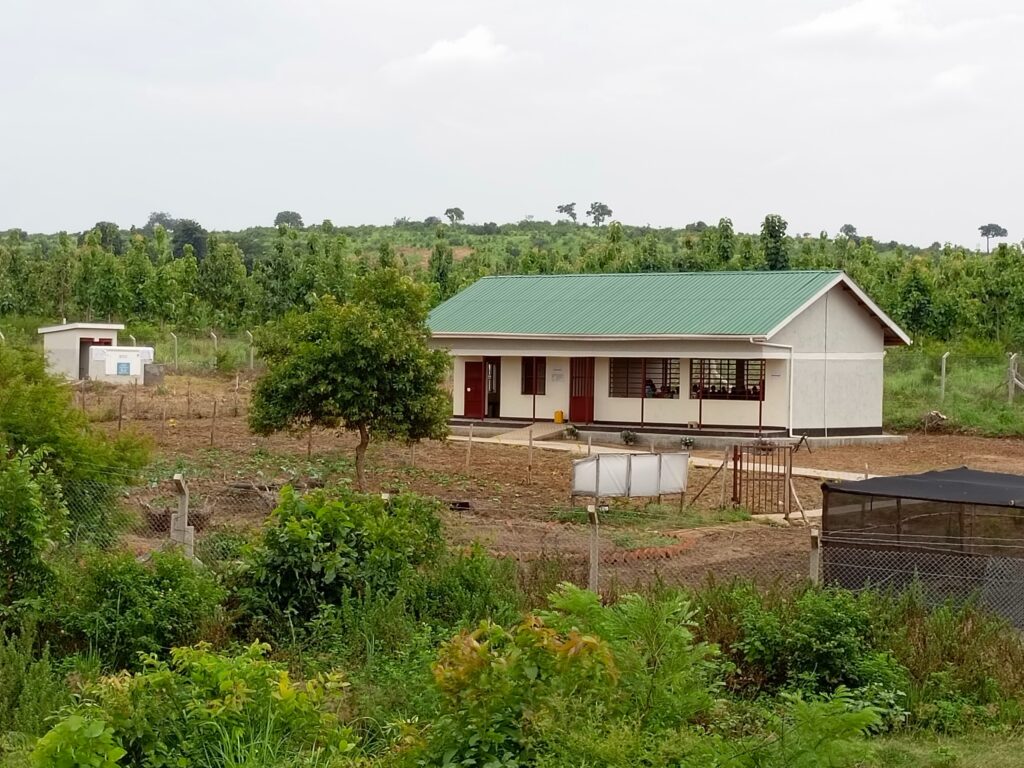
Imvepi, which hosts over 73,000 refugees, is one of Uganda’s largest and most active settlements, primarily accommodating people fleeing conflict from South Sudan and the Democratic Republic of Congo.
“We are here today to celebrate a space of healing and transformation,” said David Asubu, Acting Regional Field Coordinator for ActionAid International Uganda in Northern Uganda and West Nile.
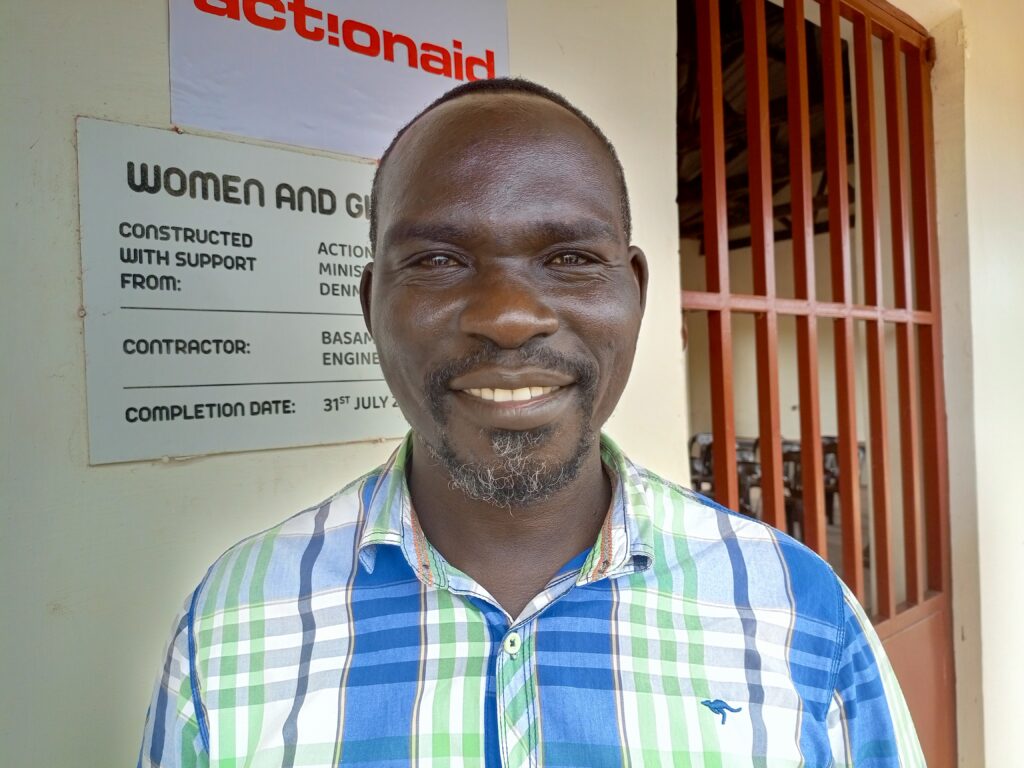
“This centre directly supports around 150 women and girls, offering a secure, private environment where they can access counselling, learn new skills, and begin the journey to economic and emotional recovery.”
“The construction of this centre began in 2023, starting with consultations. Initially, we had a budget of UGX 120 million, but with additional support, the total investment has grown to around UGX 160 million, covering the building, fencing, and other support initiatives,” noted Asubu.
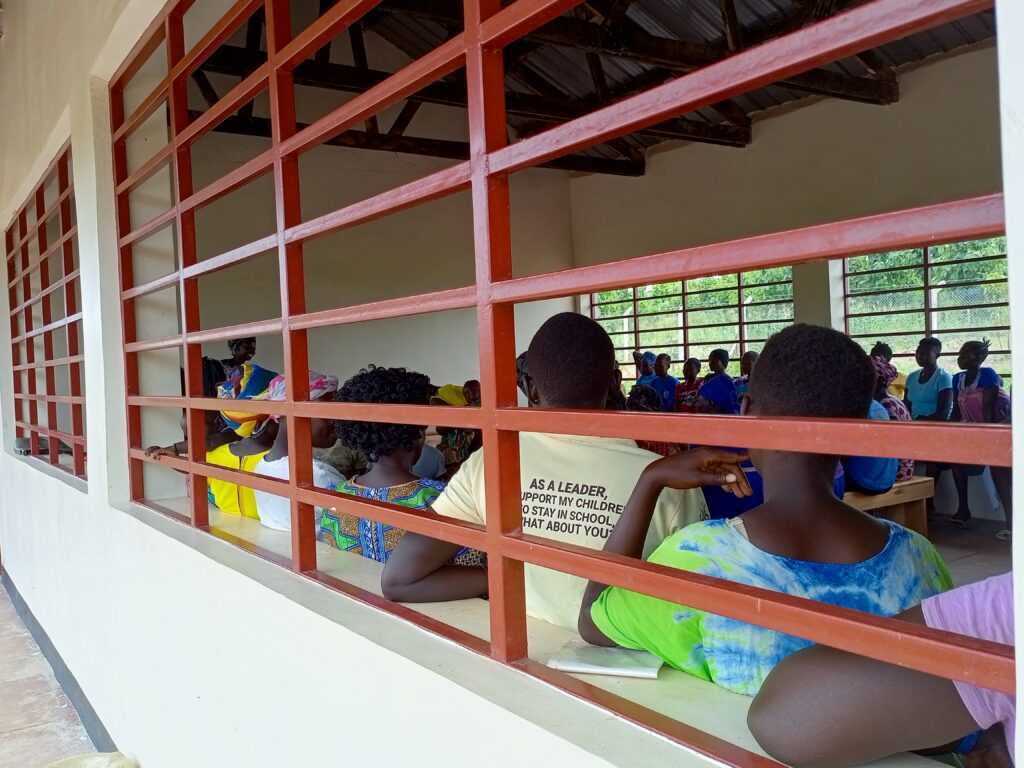
The Safe Space includes an agroecology centre that empowers women through sustainable farming techniques. Asubu noted that economic empowerment has proven effective in reducing household tensions and GBV.
“When women are economically active, men begin to appreciate and respect their contribution. We are already seeing positive changes in family dynamics,” he said.
The centre is part of ActionAid’s broader humanitarian work in Uganda, aligned with the Ministry of Gender’s GBV response strategy, which mandates shelters across districts. Similar facilities have already been built in Gulu, Moroto, Nebbi, and Yumbe districts.
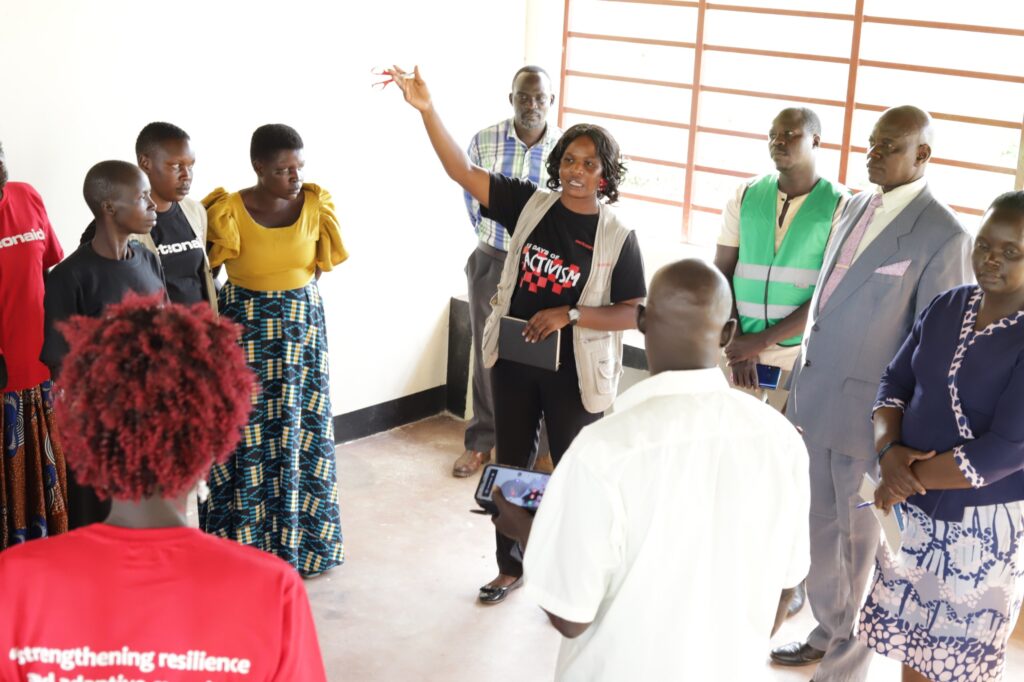
Holistic Support and Mentorship
Apio Anna Goretti, Acting Deputy Secretary and Protection Officer at ActionAid Uganda, explained that the Loketa Safe Space—named after the local women’s group—offers a full range of protection services.
“We identify GBV cases, offer counselling, and provide referrals to other agencies in the protection network. But beyond that, this space fosters peer mentorship and leadership development,” she said.
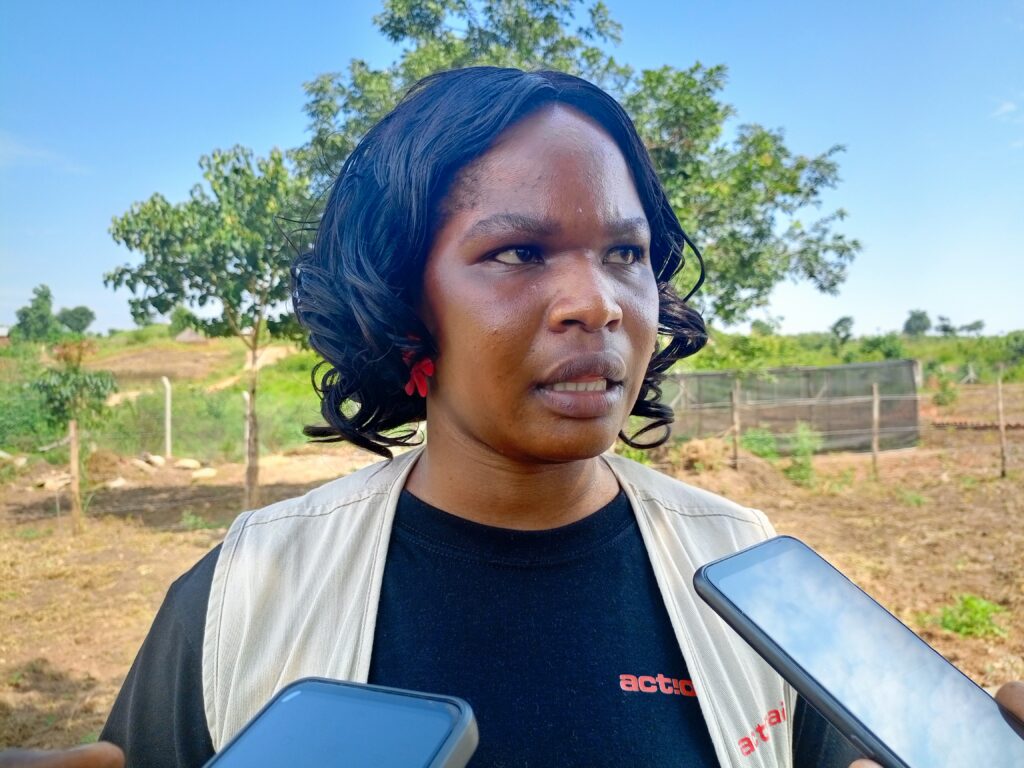
The centre has trained women in basket weaving, tailoring, hairdressing, and agroecology. Many have gone on to start small businesses or assume leadership positions in their communities. “This centre is not just a shelter; it is a launchpad for women to reclaim their voice and agency,” Goretti added.
Adjacent to the safe space is the Loketa Agroecology Centre, where women grow crops and vegetables to combat economic violence. Goretti pointed out that some of the GBV cases stemmed from women’s dependence on their spouses for food and basic needs. “Now, women have their sources of food and income. It’s both a form of resistance and resilience.”
Stories of Resilience and Transformation
Two women, Suya Suzan and Betty Tabu, shared powerful testimonies about how the centre transformed their lives.
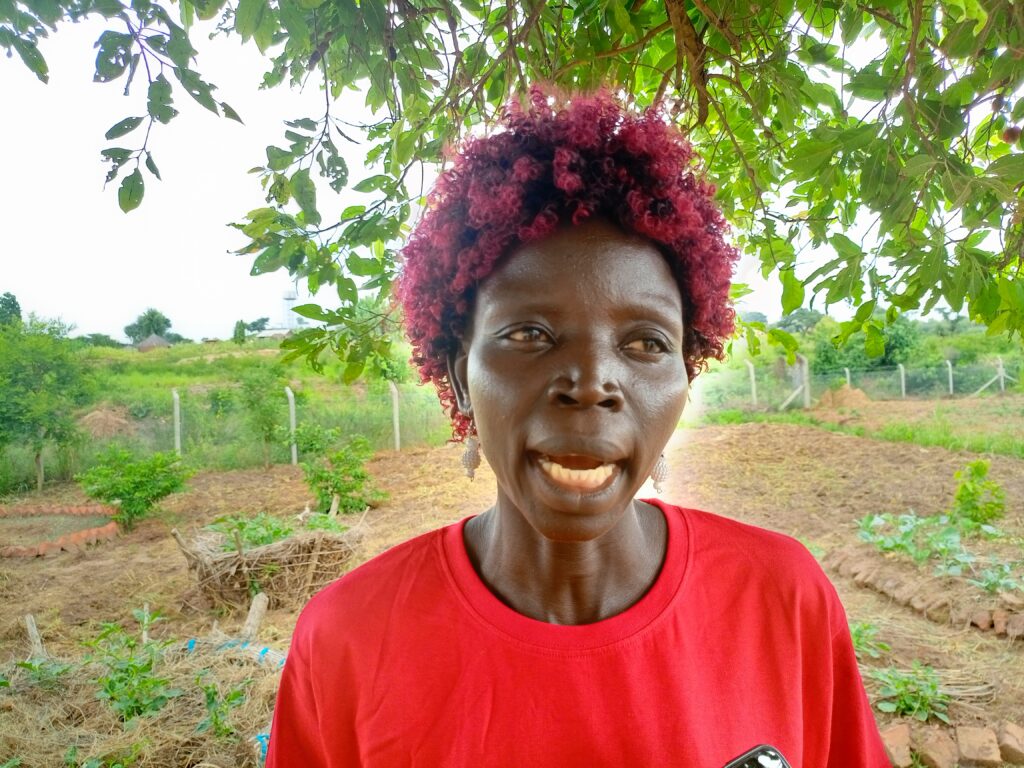
Suzan, who fled South Sudan in 2016 after witnessing the brutal killing of her cousin, arrived in Uganda traumatised and financially destitute. Through counselling, skills training in baking, and agroecology, she has become self-reliant and now supports 16 children.
“At one point, my daughter said she should drop out of school to help at home. I told her no. Because of this centre, I was able to keep her in school,” she said. Her daughter is now in Primary Seven. She is also rearing goats and pigs to supplement her income.
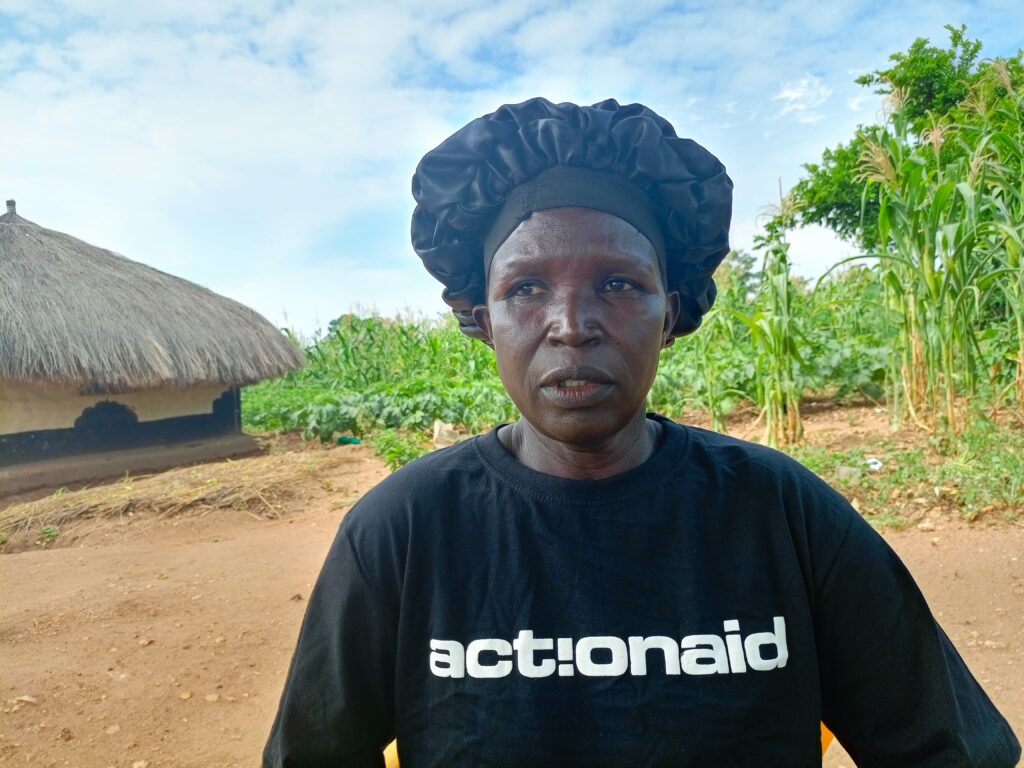
Similarly, Tabu recounted how the trauma of her brother’s death in Yei, South Sudan, followed her to Imvepi until she found healing through counselling and training at the centre.
Today, she makes and sells pastries and runs a home garden that provides food and income for her family. “I am no longer a victim of conflict. I am a strong woman building a future for my children,” she said.
A Call for More Support
Ismail Mulikiriza, Protection Officer at the Office of the Prime Minister’s Department of Refugees, emphasised the need to scale up such interventions. “Each zone here in Imvepi has more than 73,000 people, but this is the only Safe Space of its kind. We need more centres like this to match the demand,” he said.

Ismael commended ActionAid for replacing a previous structure that had been destroyed by storms with a dignified facility where women can meet, learn, and heal. “This is more than a building—it’s a symbol of hope,” he said, noting the integration of counselling with skills like tailoring and honey production.
Sustainable Refugee Support Amid Funding Fatigue
Amaruma Manza Vincent, Camp Commandant of Imvepi Settlement, acknowledged the challenges of sustaining services amidst global funding fatigue.
Currently, Uganda hosts over 1.8 million refugees, making it the largest refugee-hosting country in Africa. These refugees primarily come from South Sudan (54%) and the Democratic Republic of Congo (32%).
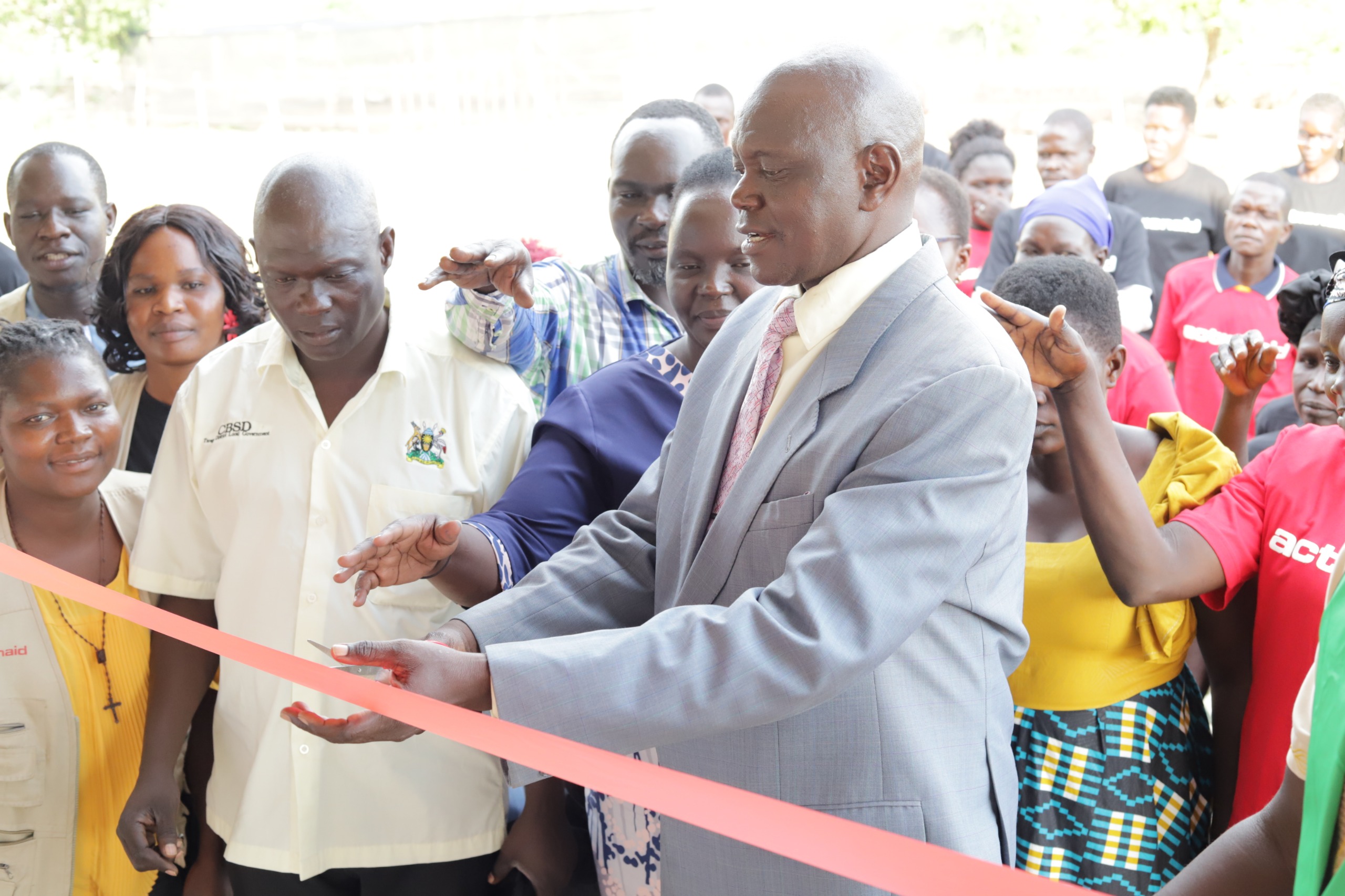
While Uganda has a progressive open-door policy, the large influx of refugees, including recent arrivals from Sudan, is putting a strain on resources and infrastructure. However, Amaruma reaffirmed Uganda’s commitment to supporting refugees.
“We are still receiving new arrivals from conflict areas. Despite resource constraints, we prioritise dignity and protection,” he said.
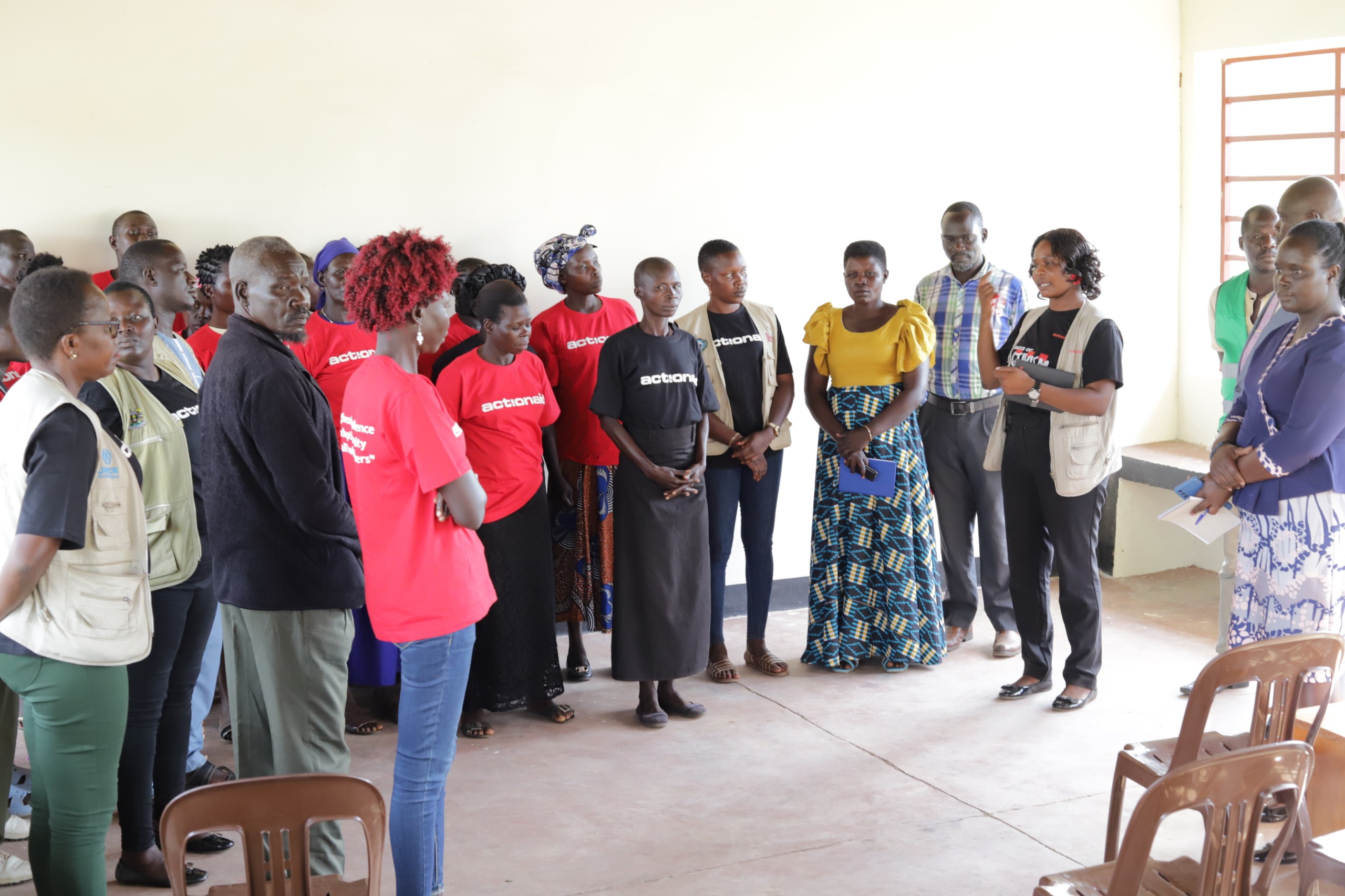
He highlighted the importance of safe spaces in addressing the root causes of GBV and fostering social cohesion. “When women are economically empowered, family tensions reduce. These spaces are not just for refugees; they benefit the entire community,” he said.
The Safe Space launch adds to Uganda’s reputation for progressive refugee policies, which include the right to work, move freely, and access social services.
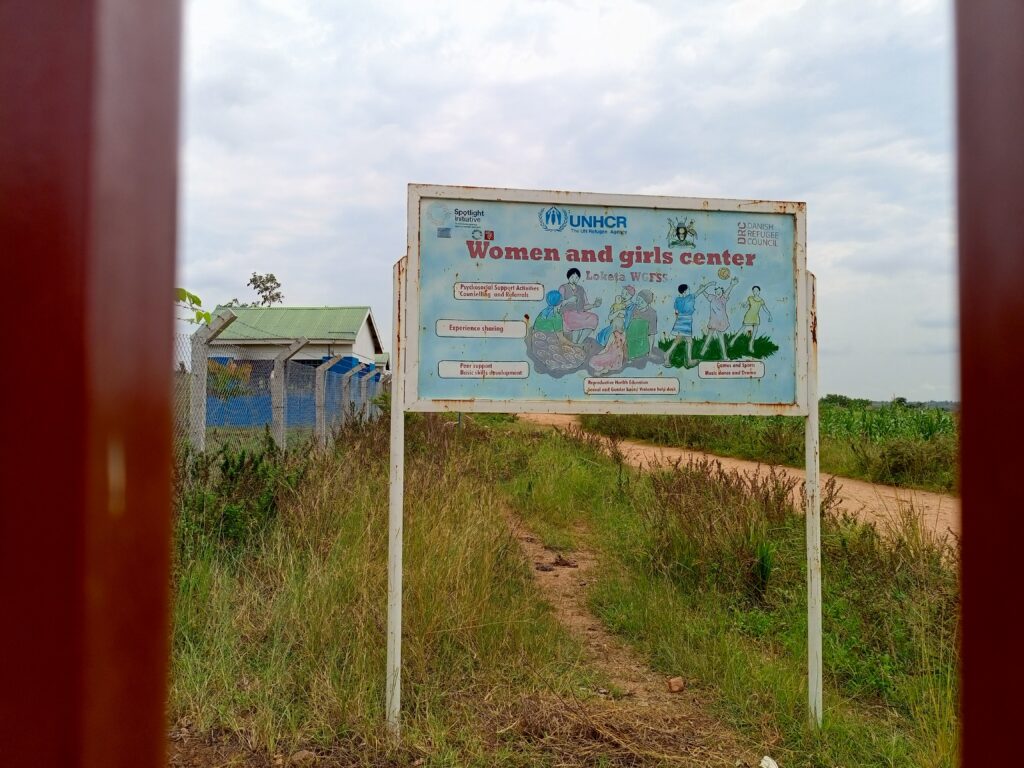
With growing needs and limited resources, development partners hope this centre becomes a model for replication across other refugee-hosting areas.
“This is a small space with a big impact,” said Asubu. “It represents what is possible when we invest in the dignity, safety, and potential of women and girls.”
